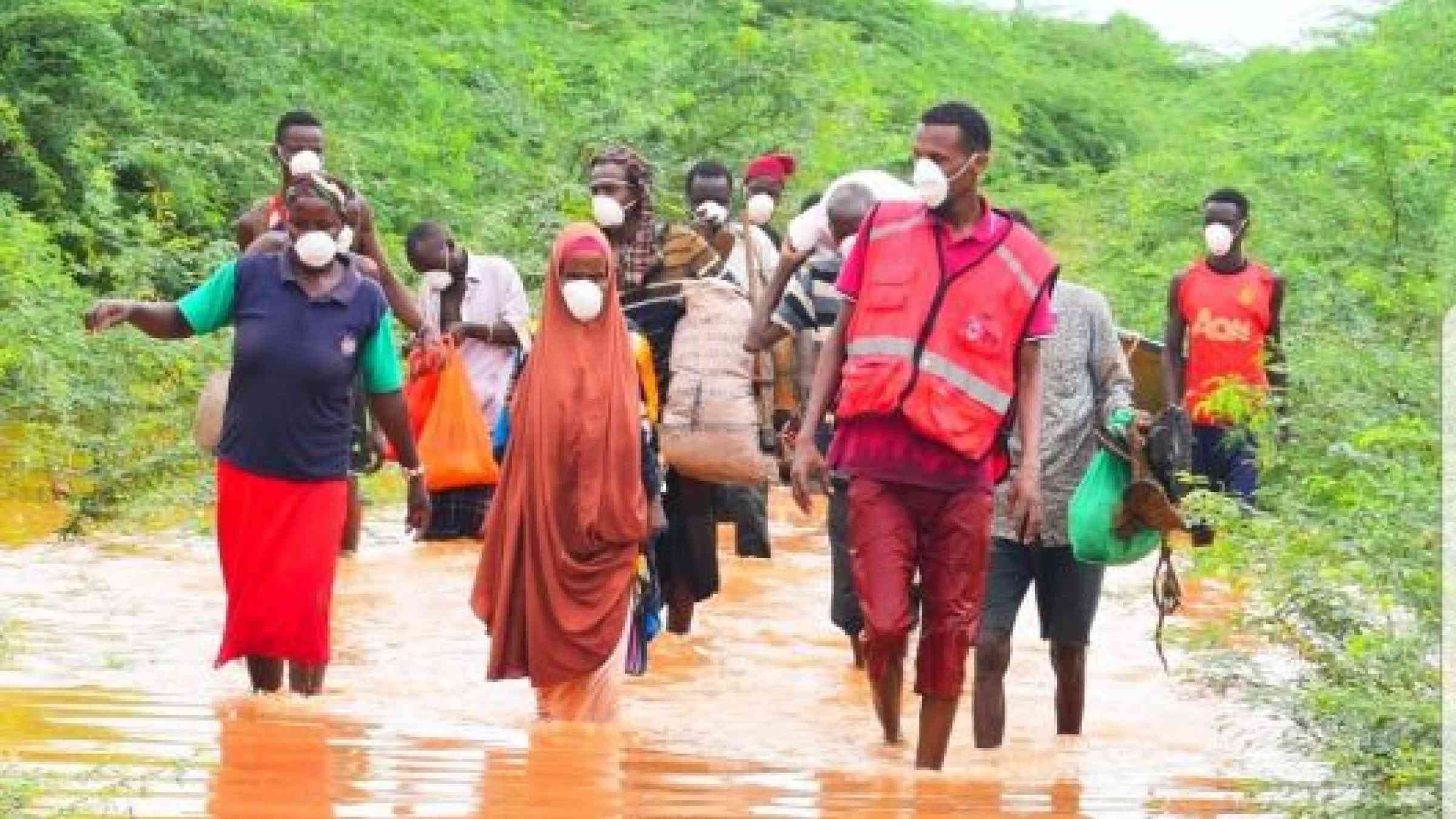When conflict, climate change and COVID19 collide: building resilience in complex emergencies.
The IFRC, ICRC and the World Bank are sharpening our collective understanding of how fragile contexts which face multiple threats can strengthen risk reduction and contribute to building resilience at the community level. Partnerships across the humanitarian and development fields are critical to bridge the gaps in emergency response and link to longer term investments in recovery and development - a concept well agreed on but a practice that remains woefully unfulfilled. This session will interrogate gains being made and propose practical ways forward to accelerate progress. The session builds on the Africa Regional Platform theme ‘Towards Disaster Risk-Informed Development for a Resilient Africa in a COVID19 Transformed World’ and aligns with GPDRR’s themes on strengthening disaster risk governance, investing in local action to empower communities most exposed to risks and accelerating integrated disaster risk management as a pathway to achieving sustainable development.
Session objectives
The drivers of crises are becoming more complex, and impacts are lasting longer. Emergencies are being driven by an intricate mix of climate and environmental change, disaster risk, pandemics, conflict, fragility and displacement. The Side Event will:
- interrogate existing challenges in order to draw attention to concrete illustrations of what complex crisis mean in practice from a range of diverse perspectives on risk.
- showcase promising opportunities across the humanitarian-development continuum that strengthen institutional and community recovery and preparedness.
- establish connections and make propositions to accelerate progress which specifically target action across the disaster and crisis response, recovery and developmental spheres.
Join Zoom Meeting
- Meeting ID: 826 0840 9951
- Passcode: 410270
Moderator
-
Ms. Thandie Mwape Villadsen - Regional Head, a.i., Humanitarian Diplomacy and Liaison Support, IFRC
Speakers
- Mr. Daniel O’Malley - Head of Regional Delegation for Kenya, Djibouti and Tanzania, ICRC
- Ms. Andoniaina Ratsimamanga - Secretary General Malagasy Red Cross
- Mr. Martin Schuldes -German Federal Ministry of Economic Cooperation and Development (BMZ)
- Mr. Nouhoum Maiga -Secretary General, Mali Red Cross
- Mr. Ayaz Parvez -Lead DRM Specialist GFDRR/World Bank
- Mr. Banak Waal -Ministry of Humanitarian Affairs and Disaster Management of South Sudan
- Ms. Katie Peters-Senior Research Fellow, ODI (tbc)
Documents
Learn more
Participants will be immersed in a discussion on risk-informed humanitarian and development interventions, with insight into the complementarities and contradictions that arise from different perspectives on risk.
Where do we stand
Africa faces multiple complex threats including but not limited to climate change impacts, the COVID19 pandemic, and conflict. The year 2021, for example, saw 11 countries simultaneously responding to floods, displacements and food security while addressing COVID19. At least another five countries were embroiled in active armed conflict. And in addition, all these contexts continue to deal with climate-change induced droughts/food insecurity, and economic, health and social repercussions from the COVID19 pandemic. Yet our responses to risk are not always aligned, and well intentioned action to address different threats are not always cognizant of the positive or negative impact on risk management of other coexisting threats. Furthermore action on risk varies across scales. Recognizing that communities are themselves the first responders to crises requires international and national partners to rally behind their knowledge and power of mobilization. But does this happen sufficiently? And what are the opportunities to build resilience when conflict, COVID19 and climate change collide, surpassing local to sub-national risk management capacities?
The interaction of compounding risks in complex emergencies demands for a flexible and efficient HD(P) nexus approach. In reality, there is no linear progress from humanitarian response to development but rather rapid shifts between humanitarian interventions and windows of development. Through partnerships across the nexus recovery efforts and development gains can ideally be safeguarded during humanitarian crisis and response and increasing long-term resilience.
Session guiding questions
- How do complementarities and contradictions from different perspectives on risk manifest in practice?
- What changes to operational approaches are enacted, or are required, to genuinely deal with coexisting risks – taking the example of disasters, climate, conflict and COVID19?
- What needs to be done at strategic and policy levels to accelerate a more comprehensive approach to pursuing resilience outcomes in contexts of complex risk contexts?

Agenda
Location
BNDCC 2-Ground Floor
Online access
Participation
Open to those registered for the conferenceDetails
Contact
Ayaz Parvez (GFDRR/WB) aparvez@worldbank.org Thandie Mwape (IFRC) - Thandie.MWAPE@ifrc.org Liesa Sauerhammer (DRK) -L.Sauerhammer@drk.de